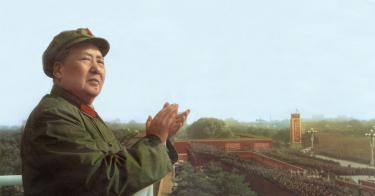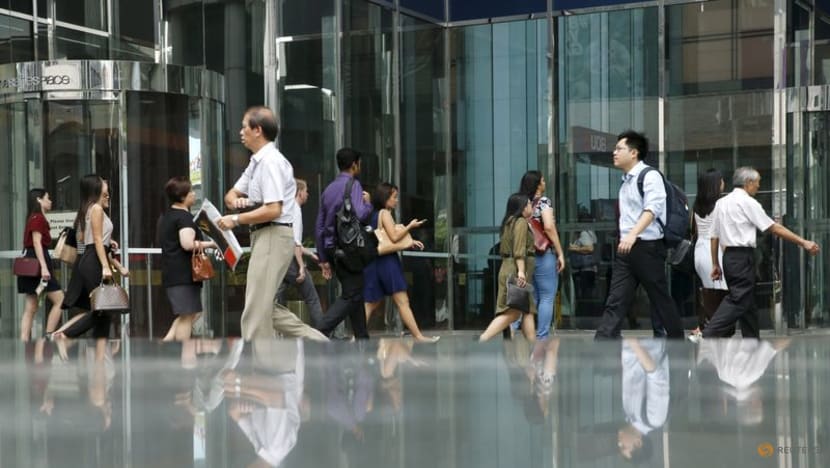-
IP addresses are NOT logged in this forum so there's no point asking. Please note that this forum is full of homophobes, racists, lunatics, schizophrenics & absolute nut jobs with a smattering of geniuses, Chinese chauvinists, Moderate Muslims and last but not least a couple of "know-it-alls" constantly sprouting their dubious wisdom. If you believe that content generated by unsavory characters might cause you offense PLEASE LEAVE NOW! Sammyboy Admin and Staff are not responsible for your hurt feelings should you choose to read any of the content here. The OTHER forum is HERE so please stop asking.
You are using an out of date browser. It may not display this or other websites correctly.
You should upgrade or use an alternative browser.
You should upgrade or use an alternative browser.
Dua Ghee Liao…Beekok told Gan 10% Tariff ish Moh Tek King de woh
- Thread starter k1976
- Start date
- Joined
- May 16, 2023
- Messages
- 44,507
- Points
- 113
Wow….our $10 fishball noodle is really NOT expensive as it has Michelin Satu Star award de woh
- Joined
- May 16, 2023
- Messages
- 44,507
- Points
- 113
Wow…this wan if can cum here surely Michelin 5stars award de woh
- Joined
- Oct 5, 2012
- Messages
- 21,520
- Points
- 113
Subscribe for $0.50/week
In China, Financial Stress Stalks Hospitals and Bankruptcies Soar
Still recovering from heavy spending during the pandemic, hospitals are squeezed by a slumping economy and government efforts to curb health care spending.Listen to this article · 7:29 min Learn more
- Share full article
- 17

The Huiren Hospital in Suqian, China. The hospital recently closed, leaving behind labor disputes with unpaid workers. Credit...Keith Bradsher/The New York Times



By Claire FuDaisuke Wakabayashi and Keith Bradsher
Claire Fu and Daisuke Wakabayashi, based in Seoul, cover the Chinese economy and business. Keith Bradsher reported from Suqian and Xuzhou in China.
Feb. 20, 2025
阅读简体中文版閱讀繁體中文版
Legal warnings posted on the door of a private, for-profit hospital in eastern China tracked its descent into financial failure.
Huiren Hospital in the city of Suqian was warned for failing to pay employees. Four months later, a judicial summons said it still had not paid back wages. Finally, in September a paper taped across its entrance declared the building closed.
The hospital, once known for treating men with infertility or sexually transmitted diseases, had been hollowed out. The furniture and equipment were gone. There was no staff.
Public and private hospitals across China are suffering financially. During the Covid-19 pandemic, their expenses swelled from the enormous cost of mass testing — a core component of the government’s campaign to prevent the spread of the coronavirus. At the same time, hospitals generated less revenue because patients avoided crowded waiting rooms for fear of contracting the virus
- Joined
- Oct 5, 2012
- Messages
- 21,520
- Points
- 113
Open Navigation Open Search
Donate
COMMENTARY China
The Legacy of Mao Zedong is Mass Murder
Feb 2, 2010 2 min readLee Edwards, Ph.D.
@LeeWEdwards
Former Distinguished Fellow in Conservative Thought
Lee Edwards is a leading historian of American conservatism and the author or editor of 25 books.

Copied
Can you name the greatest mass murderer of the 20th century? No, it wasn’t Hitler or Stalin. It was Mao Zedong.
According to the authoritative “Black Book of Communism,” an estimated 65 million Chinese died as a result of Mao’s repeated, merciless attempts to create a new “socialist” China. Anyone who got in his way was done away with—by execution, imprisonment or forced famine.
For Mao, the No. 1 enemy was the intellectual. The so-called Great Helmsman reveled in his blood-letting, boasting, “What’s so unusual about Emperor Shih Huang of the China Dynasty? He had buried alive 460 scholars only, but we have buried alive 46,000 scholars.” Mao was referring to a major “accomplishment” of the Great Cultural Revolution, which from 1966-1976 transformed China into a great House of Fear.
The most inhumane example of Mao’s contempt for human life came when he ordered the collectivization of China’s agriculture under the ironic slogan, the “Great Leap Forward.” A deadly combination of lies about grain production, disastrous farming methods (profitable tea plantations, for example, were turned into rice fields), and misdistribution of food produced the worse famine in human history.
Deaths from hunger reached more than 50 percent in some Chinese villages. The total number of dead from 1959 to 1961 was between 30 million and 40 million—the population of California.
Rounding up enemies
Only five years later, when he sensed that revolutionary fervor in China was waning, Mao proclaimed the Cultural Revolution. Gangs of Red Guards—young men and women between 14 and 21—roamed the cities targeting revisionists and other enemies of the state, especially teachers.
Professors were dressed in grotesque clothes and dunce caps, their faces smeared with ink. They were then forced to get down on all fours and bark like dogs. Some were beaten to death, some even eaten—all for the promulgation of Maoism. A reluctant Mao finally called in the Red Army to put down the marauding Red Guards when they began attacking Communist Party members, but not before 1 million Chinese died.
All the while, Mao kept expanding the laogai, a system of 1,000 forced labor camps throughout China. Harry Wu, who spent 19 years in labor camps, has estimated that from the 1950s through the 1980s, 50 million Chinese passed through the Chinese version of the Soviet gulag. Twenty million died as a result of the primitive living conditions and 14-hour work days.
Such calculated cruelty exemplified his Al Capone philosophy: “Political power grows out of the barrel of a gun.”
And yet Mao Zedong remains the most honored figure in the Chinese Communist Party. At one end of historic Tiananmen Square is Mao’s mausoleum, visited daily by large, respectful crowds. At the other end of the square is a giant portrait of Mao above the entrance to the Forbidden City, the favorite site of visitors, Chinese and foreign.
Repression continues
In the spirit of Mao, China’s present rulers continue to oppress intellectuals and other dissidents such as human-rights activist Liu Xiaobo. He was sentenced last month to 11 years in prison for “inciting subversion of state power.” His offense: signing Charter 08, which calls on the government to respect basic civil and human rights within a democratic framework. .
China presents itself as a vast market for U.S. companies and investors. But some U.S. companies are taking a second look at doing business in a country which considers Mao Zedong its patron saint. Google has said it is reconsidering its operations in China after discovering a sophisticated cyber attack on its e-mail which the government must have initiated or approved.
Google has revealed what many in the Internet world have known for some time—China routinely hacks into U.S. and Western Web sites for national security and other valuable information. Mao would have enthusiastically applauded this intellectual rape.
I wonder: would President Obama be so ready to kowtow to China if in the middle of Beijing there was a mausoleum of Hitler and, hanging from the gate to the Forbidden City, a giant swastika
- Joined
- Oct 5, 2012
- Messages
- 21,520
- Points
- 113
I prefer dogs. U have white pappy dogs?My neighbour dog gave birth to 3 kittens yesterday
Bro @rocket do u want to adopt them ?
- Joined
- May 16, 2023
- Messages
- 44,507
- Points
- 113
Going to Altar soon after this Saturday?
- Joined
- May 16, 2023
- Messages
- 44,507
- Points
- 113
Mature workers, fresh grads may face challenges in jobs market in light of US tariffs: Tan See Leng

Mature workers may face more challenges in the job market amid a global economy shake-up sparked by the US tariffs.ST PHOTO: LIM YAOHUI
Sharon Salim
UPDATED APR 17, 2025, 10:56 AM
SINGAPORE – Mature workers and fresh graduates may face more challenges in the jobs market amid a global economy shake-up, said Manpower Minister Tan See Leng.
Dr Tan was speaking to the media during the first meeting of the Singapore Economic Resilience Taskforce on April 16.
The task force was set up to help affected businesses and workers navigate the uncertainties sparked by US tariffs on Singapore goods. It will have three work streams, one of which will focus on identifying the pain points and immediate challenges faced by businesses and workers, and review the measures available to support them.
- Joined
- May 16, 2023
- Messages
- 44,507
- Points
- 113
Incoming Alert
ADVERTISEMENT
Singapore

Office workers walking to work in Singapore's central business district. (File photo: Reuters/Edgar Su)
Listen
5 min
New: You can now listen to articles.


Lutfil Jumadi
28 Apr 2025 01:17PM (Updated: 28 Apr 2025 03:57PM)
BookmarkShare
Read a summary of this article on FAST.
FAST
SINGAPORE: Singapore's labour demand slowed in the first quarter of 2025, amid economic uncertainty and escalating global trade conflicts, said the Ministry of Manpower (MOM) on Monday (Apr 28).
While the labour market has continued to expand, employment growth slowed in the first quarter compared to previous quarters, and the unemployment rate edged up slightly, MOM said in an advance release of its quarterly labour force report.
ADVERTISEMENT
The moderation in labour demand was most evident in certain outward-oriented sectors, such as professional services, which recorded declines in resident employment, MOM said.
Retrenchments, however, declined in the first quarter compared to the previous one, the ministry added.
Earlier this month, Singapore downgraded its gross domestic product (GDP) growth forecast for 2025 to 0 per cent to 2 per cent, against the backdrop of slowing global trade and heightened economic uncertainty following US President Donald Trump's tariffs.
"This reflects smaller increases in both resident and non-resident employment, compared to Q4 2024," said MOM.
Resident employment continued to rise in health and social services as well as financial services. However, resident employment contracted for outward-oriented sectors such as professional services, manufacturing, and information and communications.
ADVERTISEMENT
Non-resident employment increased and was driven entirely by work permit holders in lower-skilled jobs, mainly in administrative and support services and community, social and personal services.
Unemployment rates also rose slightly in the first quarter of 2025 compared to the last quarter of 2024, with the resident unemployment rate increasing from 2.8 per cent in December 2024 to 2.9 per cent between January and March this year.
While the citizen unemployment rate held steady at 3.1 per cent in March compared to February, it was higher than the 2.9 per cent recorded in December 2024.
Despite this, the unemployment rates "remained within the non-recessionary range", said MOM.

ADVERTISEMENT
The incidence of retrenchment remained low at 1.3 per 1,000 employees, down slightly from 1.5 in the previous quarter.
"Retrenchments were stable or lower across most sectors, with business reorganisation or restructuring remaining the top reason for retrenchments in Q1 2025," said MOM.
"Recession or downturn in the industry accounted for only a small proportion of retrenchments."
The moderation of employment growth in the first quarter of 2025, particularly in some outward-oriented sectors, alongside a slight increase in unemployment, "mirrors the deterioration in Singapore’s economic outlook", said MOM.
Business sentiments have also turned more cautious.
ADVERTISEMENT
Singapore
Employment growth slows in Q1 2025 amid economic uncertainty; retrenchments dip
Unemployment rates also rose slightly in the first quarter, but remained within the "non-recessionary range", according to advance estimates from the Ministry of Manpower.
Office workers walking to work in Singapore's central business district. (File photo: Reuters/Edgar Su)
Listen
5 min
New: You can now listen to articles.


Lutfil Jumadi
28 Apr 2025 01:17PM (Updated: 28 Apr 2025 03:57PM)
BookmarkShare
Read a summary of this article on FAST.
FAST
SINGAPORE: Singapore's labour demand slowed in the first quarter of 2025, amid economic uncertainty and escalating global trade conflicts, said the Ministry of Manpower (MOM) on Monday (Apr 28).
While the labour market has continued to expand, employment growth slowed in the first quarter compared to previous quarters, and the unemployment rate edged up slightly, MOM said in an advance release of its quarterly labour force report.
ADVERTISEMENT
The moderation in labour demand was most evident in certain outward-oriented sectors, such as professional services, which recorded declines in resident employment, MOM said.
Retrenchments, however, declined in the first quarter compared to the previous one, the ministry added.
Earlier this month, Singapore downgraded its gross domestic product (GDP) growth forecast for 2025 to 0 per cent to 2 per cent, against the backdrop of slowing global trade and heightened economic uncertainty following US President Donald Trump's tariffs.
EMPLOYMENT GROWTH
Total employment, excluding migrant domestic workers, grew by 2,300 in Q1 2025. This was lower than the growth of 3,200 observed in the same period last year, and was also below the seasonal growth of 7,700 seen in the last quarter of 2024."This reflects smaller increases in both resident and non-resident employment, compared to Q4 2024," said MOM.
Resident employment continued to rise in health and social services as well as financial services. However, resident employment contracted for outward-oriented sectors such as professional services, manufacturing, and information and communications.
ADVERTISEMENT
Non-resident employment increased and was driven entirely by work permit holders in lower-skilled jobs, mainly in administrative and support services and community, social and personal services.
Unemployment rates also rose slightly in the first quarter of 2025 compared to the last quarter of 2024, with the resident unemployment rate increasing from 2.8 per cent in December 2024 to 2.9 per cent between January and March this year.
While the citizen unemployment rate held steady at 3.1 per cent in March compared to February, it was higher than the 2.9 per cent recorded in December 2024.
Despite this, the unemployment rates "remained within the non-recessionary range", said MOM.
Related:

More residents found higher-skilled jobs in 2024 as resident employment grew: MOM
FALL IN RETRENCHMENTS, CAUTIOUS BUSINESS SENTIMENTS
The number of retrenchments fell to 3,300 in the first quarter of 2025, down from 3,680 in the fourth quarter of last year.ADVERTISEMENT
The incidence of retrenchment remained low at 1.3 per 1,000 employees, down slightly from 1.5 in the previous quarter.
"Retrenchments were stable or lower across most sectors, with business reorganisation or restructuring remaining the top reason for retrenchments in Q1 2025," said MOM.
"Recession or downturn in the industry accounted for only a small proportion of retrenchments."
The moderation of employment growth in the first quarter of 2025, particularly in some outward-oriented sectors, alongside a slight increase in unemployment, "mirrors the deterioration in Singapore’s economic outlook", said MOM.
Business sentiments have also turned more cautious.
- Joined
- Aug 10, 2008
- Messages
- 111,774
- Points
- 113
If Tharman is our PM or DPM, scenario will be completely different. Gan Kim Yong is a joke to Singapore.
Don't bet on it. Trump despises globalist WEF vermins like Tharman.

- Joined
- May 16, 2023
- Messages
- 44,507
- Points
- 113
Don't bet on it. Trump despises globalist WEF vermins like Tharman.
That means Trump love non WEF cheerleaders?
- Joined
- Dec 29, 2012
- Messages
- 2,186
- Points
- 113
American owned businesses probably enjoy big tax reliefs/rebates in SG. IRAS should start looking into how to reduce those perks and bring back some tax dollars to the people. they can jolly well fuck off from the island. more FT jobs will be lost vs local PMET jobs
- Joined
- May 16, 2023
- Messages
- 44,507
- Points
- 113
We will know the answer soon next weekAmerican owned businesses probably enjoy big tax reliefs/rebates in SG. IRAS should start looking into how to reduce those perks and bring back some tax dollars to the people. they can jolly well fuck off from the island. more FT jobs will be lost vs local PMET jobs
Similar threads
- Replies
- 2
- Views
- 311
- Replies
- 12
- Views
- 766
- Replies
- 3
- Views
- 641
- Replies
- 5
- Views
- 1K
